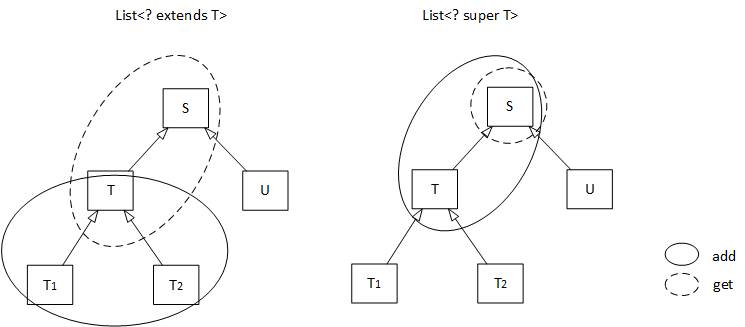In java generics, the wildcard ? represents an unknown type, which is equivalent to <? extends Object>, <? extends T> is an upper bound-qualified wildcard, <? super T> is a lower bound-qualified wildcard.
1. Difference
In a list, the object types that can be stored and read by the upper and lower bound wildcards are shown in the following figure:

2. Principles
The use of upper and lower bound wildcards should follow the PECS principle: Producer Extends, Consumer Super.
Qualified wildcards always include themselves
Upper bound type wildcard: add method is restricted
Nether type wildcard: get method restricted
If you want to get data from a data type, use the ? extends wildcard
If you want to write the object into a data structure, use the ? super wildcard
If you want to save and get it, don't use wildcards
Generic wildcard upper and lower bounds cannot be declared at the same time
refer to:
How to understand super in Java generics <? super T>? How is it different from extends? - Fat Answer- Knowing https://www.zhihu.com/question/20400700/answer/117464182